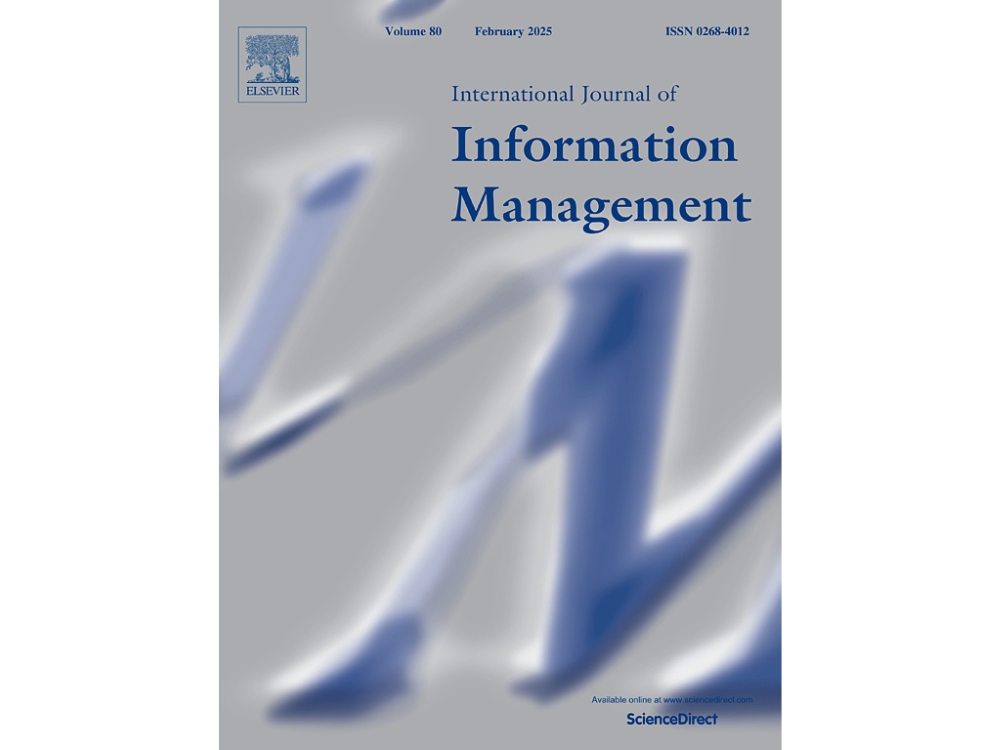Artículos
EXTENDED SUBMISSION DEADLINE: 31 DECEMBER 2024 SPECIAL ISSUE: “LIGHTS AND SHADOWS OF GENERATIVE AI FOR INDIVIDUALS, ORGANIZATIONS, AND SOCIETY”

Lights and shadows of generative AI for individuals, organizations, and society" explores the multifaceted impacts of generative artificial intelligence (GenAI) and related technologies on various domains. This special issue delves into both the advantages and potential pitfalls of GenAI, touching upon its profound influence on individuals, businesses, and society at large. It examines the integration of AI in business strategies across different sectors, highlighting how AI's increasing sophistication is transforming marketplaces and decision-making processes. The issue also addresses the ethical implications and challenges arising from AI adoption, underscoring the need for a balanced approach to harness GenAI's full potential while mitigating its risks.
Special issue information:
This special issue aims to address not only the key benefits but also the major potential drawbacks for individuals, organizations, and societies of recent advances in generative artificial intelligence (GenAI) and other advanced AI-powered technologies (e.g., autonomous robots, predictive analytics) across varied service and consumption contexts.
Potential illustrative research questions
This special issue invites proposals focused not only on the challenges and opportunities, but also on the risks and threats associated with the widespread use of GenAI.
Opportunities and challenges
- What is the effect of using GenAI and other new AI applications in business practices? Are there differences across industries and sectors (e.g., banking, hospitality and tourism, healthcare)?
- What are the main challenges and long-term benefits of using GenAI and other new AI applications in the contexts of teaching, academic research, and business practice?
- How can GenAI and other new AI applications be used to address global challenges (e.g., Sustainable Development Goals)?
- What are the main determinants and barriers to consumers’ and managers’ adoption of GenAI and other new AI applications? How does the use of GenAI and other new AI applications affect customer and manager decision making?
- How can GenAI contribute to personalization and efficiency in the communication and advertising processes?
- How does the use of GenAI and other new AI applications affect the different stages of the customer journey (e.g., pre-purchase, purchase, and post-purchase)? How can GenAI and other forms of AI improve the customer or user experience?
- How might reliance on GenAI enhance or limit human creativity and critical thinking in different fields?
- How can specific individuals (e.g., people with disabilities) benefit from the use of GenAI and other new AI applications?
Risks and threats
- What are the key digital ethical issues (e.g., fairness, biases, privacy, security) caused by the use of GenAI and its algorithms? How could these ethical issues be mitigated?
- How can the use of GenAI applications for manipulation of the public opinion and consumer decision making be reduced or even avoided?
- How is GenAI and other new AI applications affecting the labor market? Will employees be replaced by GenAI and how?
- How might differences in access to and use of GenAI exacerbate social and economic inequalities?
- What are potential contextual conditions (e.g., country and organizational cultures) that shape how individuals and organizations use GenAI and other new AI applications?
- What challenges do GenAI applications pose for existing legal and regulatory frameworks, and how might legal frameworks be developed to address GenAI-related risks?
Expected types of analysis and context of study
We welcome submissions focused on varied sectors and environments (e.g., healthcare, education, banking, hospitality, and tourism). We especially welcome papers that include multiple studies (combining at least two studies to overcome the limitations of a quantitative cross-sectional analysis), longitudinal studies, and studies that employ mixed methods (combining qualitative and quantitative). Submitted manuscripts should not have been published previously, nor be under consideration for publication elsewhere (except conference proceedings papers).
Keywords
Generative AI, GenAI, benefits, dark side, consumer-AI interaction, AI in business strategy, AI in information systems, responsible AI.
Guest editors:
Dr. Carlos Flavián (University of Zaragoza, Zaragoza, Spain); Dr. Luis V. Casaló (University of Zaragoza, Zaragoza, Spain); Dr. Russell Belk (York University, Toronto, Canada); Dr. Ulrike Gretzel (University of Southern California, Los Angeles, California, USA); Dr. Jochen Wirtz (National University of Singapore, Singapore, Singapore).







